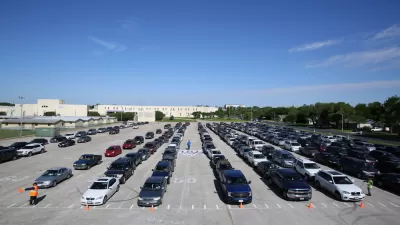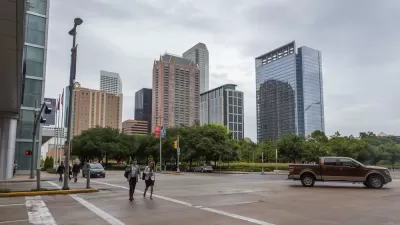A new report examines how governments can encourage citizens to use alternatives to private cars in order to reduce car dependency.

A new report by the International Transport Forum analyzes fiscal policies and other instruments for managing urban traffic and correcting current policy biases that favor automobile travel over more sustainable and affordable transport options. The report also reviews international case studies of integrated transportation and land use planning to make transportation more efficient and reduce congestion on streets.
Among the conclusions made, with much more detail, in the report:
- Cities need more efficient, less damaging and fairer use of scarce space.
- The guiding principle for managing car use is to enable citizens to carry out their daily activities without a car and not having to rely on cars to satisfy their transport needs.
- Significantly reducing the modal share of private vehicles in urban mobility implies significant long-term change in the spatial form of cities.
- The most effective urban mobility management systems deploy road pricing schemes together with road space allocation and land-use planning instruments.
FULL STORY: Reversing Car Dependency

Maui's Vacation Rental Debate Turns Ugly
Verbal attacks, misinformation campaigns and fistfights plague a high-stakes debate to convert thousands of vacation rentals into long-term housing.

Planetizen Federal Action Tracker
A weekly monitor of how Trump’s orders and actions are impacting planners and planning in America.

In Urban Planning, AI Prompting Could be the New Design Thinking
Creativity has long been key to great urban design. What if we see AI as our new creative partner?

King County Supportive Housing Program Offers Hope for Unhoused Residents
The county is taking a ‘Housing First’ approach that prioritizes getting people into housing, then offering wraparound supportive services.

Researchers Use AI to Get Clearer Picture of US Housing
Analysts are using artificial intelligence to supercharge their research by allowing them to comb through data faster. Though these AI tools can be error prone, they save time and housing researchers are optimistic about the future.

Making Shared Micromobility More Inclusive
Cities and shared mobility system operators can do more to include people with disabilities in planning and operations, per a new report.
Urban Design for Planners 1: Software Tools
This six-course series explores essential urban design concepts using open source software and equips planners with the tools they need to participate fully in the urban design process.
Planning for Universal Design
Learn the tools for implementing Universal Design in planning regulations.
planning NEXT
Appalachian Highlands Housing Partners
Mpact (founded as Rail~Volution)
City of Camden Redevelopment Agency
City of Astoria
City of Portland
City of Laramie





























